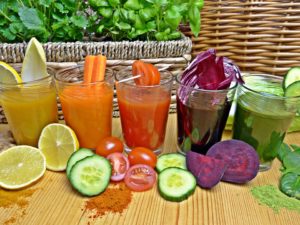 It’s a multi-billion dollar industry, but do cleanses and detoxes work? It’s been a while since I’ve posted a blog to the ApaCenter site. I am blogging more often at Tech Happy Life, which is a site devoted to increasing happiness, with a focus on using technology in a balanced way. Plus, I’ve spending a lot of time completing my book, with my good friend and co-author Dr. Jon Lasser, Tech Generation: Raising Balanced Kids in a Hyper-Connected World. I’m very excited to say that it will be published by Oxford University Press in August, 2018. But I still have other topics that interest me, and one that I’ve wanted to blog about for a long time is do cleanses and detoxes work?
It’s a multi-billion dollar industry, but do cleanses and detoxes work? It’s been a while since I’ve posted a blog to the ApaCenter site. I am blogging more often at Tech Happy Life, which is a site devoted to increasing happiness, with a focus on using technology in a balanced way. Plus, I’ve spending a lot of time completing my book, with my good friend and co-author Dr. Jon Lasser, Tech Generation: Raising Balanced Kids in a Hyper-Connected World. I’m very excited to say that it will be published by Oxford University Press in August, 2018. But I still have other topics that interest me, and one that I’ve wanted to blog about for a long time is do cleanses and detoxes work?
What’s the Scientific Evidence?
When we explore the question do cleanses and detoxes work, we have to examine the evidence in a scientific manner. To do this, we rely on studies that have used the scientific method to gather data. The scientific method involves:
- Forming a hypothesis
- Testing the hypothesis in an objective way
- Examining the data
- Summarizing the findings in a way that either supports or refutes the hypothesis. Often this involves a statistical analysis of the data.
Why Do We Rely on Science?
Why do we rely on science? We look to studies in which researchers used the scientific method? Can’t the science be wrong or biased? Well, certainly science doesn’t get everything right. The scientific method is used by people, and people, as we all know, aren’t perfect. We make mistakes and those mistakes creep into the science. Also, there many cognitive biases that can affect how researchers gather and interpret data. Moreover, there is a publication bias in which studies that have a null finding (e.g., this new drug did not reduce depression) are less likely to be published in journals than studies with a positive finding (e.g., this new drug did reduce depression). On a related note, there is also a file drawer problem in which researchers who conduct studies with null findings might not even submit such studies for journal publication. They might just be thrown into a “file drawer.” Thus, the findings of this research never sees the light of day to illuminate a particular topic.
Although science isn’t perfect, if we don’t rely on science, what’s the alternative? Our personal opinion? A roll the dice? Public sentiment? Tea leaves? For instance, when it comes to climate change, some might claim that climatologists are biased in their general conclusion (97% of actively publishing climate scientists agree on this) that the earth is warming and human activity is at least partly to blame. But if we don’t believe the preponderance of evidence from climatologists, who devote their careers and lives to studying climate change, what do we use to determine whether climate change is real, and we are the cause? What’s our source of information? Evidence supplied by the coal and oil industry? Politicians? Our personal experiences with our local weather? While imperfect, we must rely on science because there is not an alternative that exists that provides better and more accurate data.
Do Cleanses and Detoxes Work?
Let’s turn our attention back to the question do cleanses and detoxes work? There is a recent Science Vs. podcast that explores this question that I encourage you to check out. The straight answer to this question is “no.” There is not any consistent, solid scientific evidence to indicate that cleanses and detoxes work.
What do we even mean by “do they work,” you might ask? The short answer to that question would be something like “to remove toxins from our bodies to make us healthier.” We can’t rely on evidence supplied by folks selling these products because they have a vested interest in saying they do work. There is lots of money to be made on these products!
People might rightly claim, “I feel so much better/healthier when I cleanse and detox!” However, the placebo effect has been well-documented. One’s belief that a treatment works can actually result in it working (at least to some extent). For instance, if a person believes that he/she is receiving a painkiller that will reduce their back pain, the person might actually feel better even if the pill given is just a placebo. So, people who do cleanses and detoxes and claim that they work might be partially correct. They might actually feel better. However, they are not feeling better for the reasons that they think they are. They are wrongly attributing the placebo effect to perceived effectiveness of the intervention.
The truth is that our bodies naturally cleanse and detox. That’s the job of the liver and kidneys. If they didn’t do that…well, we wouldn’t live long! Over millions of years, our bodies evolved to function effectively. We don’t need artificial cleanses and detoxes to rid our bodies of toxins. Our bodies do this quite effectively already.
In the next blog, I’ll cover why so many people believe in cleanses and detoxes as well as what can really help us to just that.
